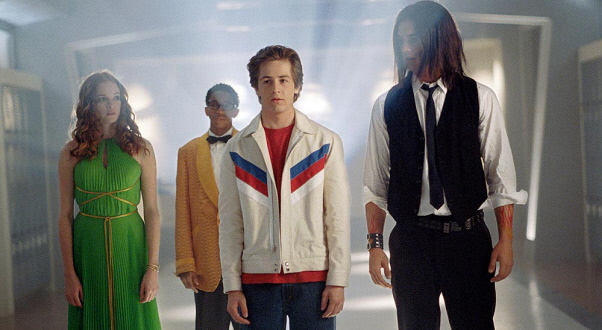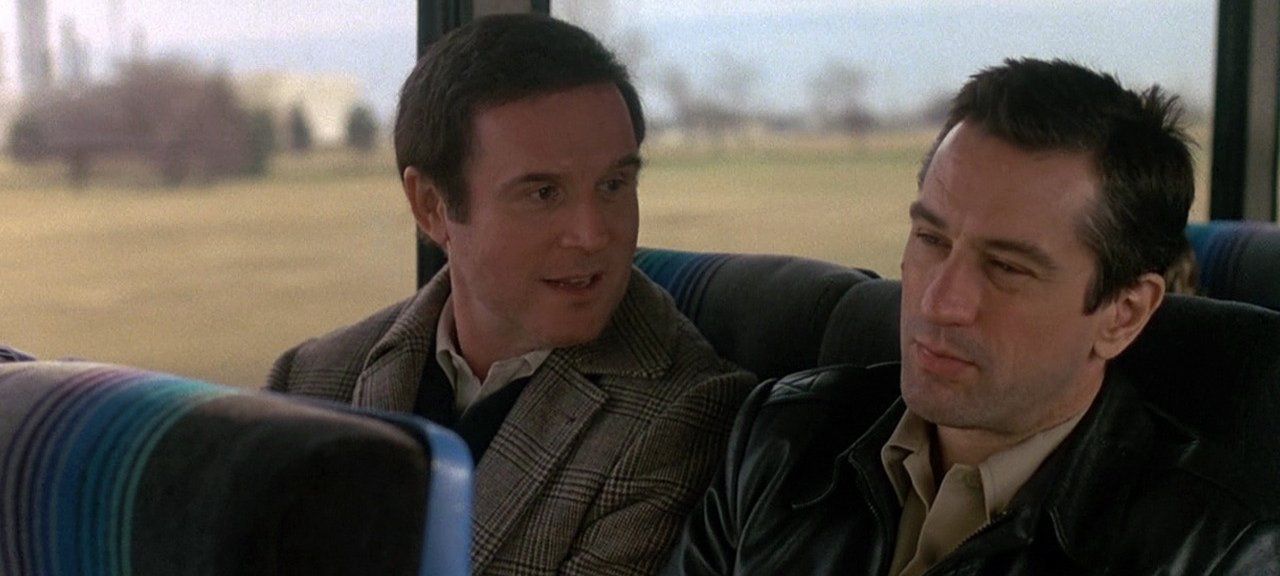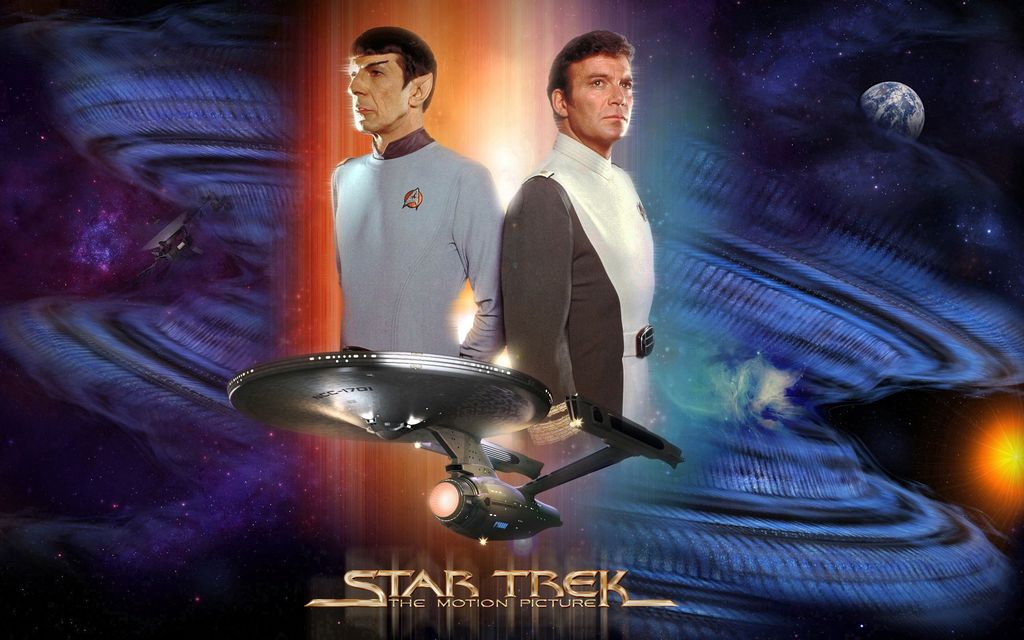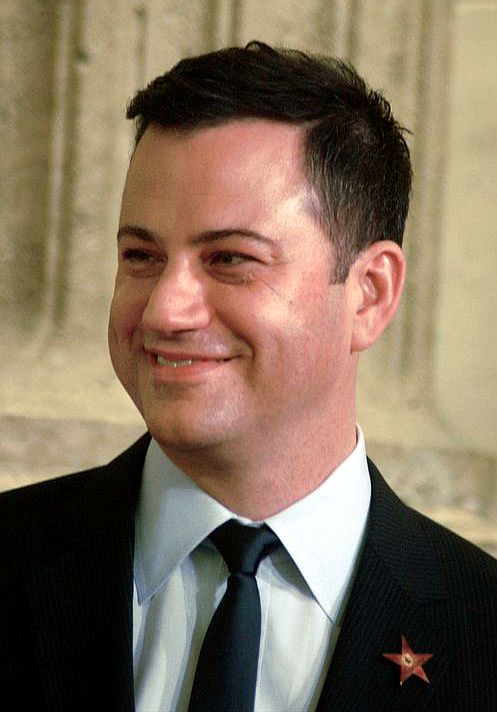
Jimmy Kimmel, a name synonymous with late-night television for two decades, stands today at a dramatic crossroads, his career a testament to both remarkable staying power and a profound, often polarizing, evolution. From the raunchy, unapologetically politically incorrect comedian who once thrived on Comedy Central to a tearful advocate for healthcare and a sharp political satirist, his journey has been anything but linear. It is a narrative woven through the fabric of American entertainment, reflecting broader cultural shifts and the increasingly blurred lines between comedy, celebrity, and political discourse.
This article embarks on an in-depth exploration of Kimmel’s extraordinary metamorphosis, tracing the trajectory from his nascent days in Las Vegas radio to the current moment where his show, “Jimmy Kimmel Live!”, faces an indefinite suspension. We will delve into the pivotal moments, the strategic shifts, and the deeply personal experiences that have shaped a public figure now at the epicenter of debates concerning free speech and the evolving role of the late-night host. It is a story of ambition, adaptation, and the complex interplay between public persona and private conviction, all unfolding under the intense scrutiny of the media spotlight. His path reveals not just a comedian’s growth, but a striking commentary on contemporary culture, power, and the complex demands placed upon those who dare to step into the national conversation.

1. **Honing the Craft: Kimmel’s Early Radio Days in Las Vegas**Long before he was trading barbs with presidents or hosting the Oscars, Jimmy Kimmel’s story began far from the glittering lights of Hollywood, in the gritty, anonymous booths of Las Vegas radio stations. This early grind was, in many ways, his boot camp, a crucible where he honed his craft through unpaid internships and quirky promotions. It was here that he learned the invaluable lessons of timing, voice control, and how to connect with an audience, even one unseen.
These formative years laid the groundwork for his future success, instilling in him a raw, unpolished authenticity that would, at different points, serve as both his greatest asset and his most significant liability. The on-the-fly nature of radio, the constant need to fill airtime and engage listeners, sharpened his quick wit and improvisational skills. It was a period of trial and error, away from the national spotlight, where he could experiment with his comedic voice and develop the conversational style that would later become a hallmark of his late-night persona.
His journey through the local airwaves of Las Vegas equipped him with a foundational understanding of entertainment, teaching him to navigate the subtle art of performance and audience engagement. It was a humble beginning, perhaps, but one that provided the essential tools for a comedian destined for bigger stages. This period cemented his understanding of what it took to capture and hold attention, a skill that would prove indispensable as he ascended the ranks of television.

2. **The National Spotlight: “Win Ben Stein’s Money” Success**Kimmel’s first significant break onto the national television scene arrived with Comedy Central’s “Win Ben Stein’s Money,” a game show that would prove instrumental in catapulting him beyond the local Las Vegas circuit. As the quick-witted sidekick to the famously monotone Ben Stein, Kimmel’s sharp comedic timing and engaging personality shone through, earning him widespread recognition. This role allowed him to showcase his natural comedic talent to a much broader audience.
His work on the show was not merely a stepping stone; it was a testament to his burgeoning ability to blend humor with an accessible, conversational style. In 1999, his efforts were recognized with a Daytime Emmy Award, a clear signal that his distinct brand of humor resonated with viewers and critics alike. This accolade provided him with significant credibility and invaluable national attention, firmly establishing him as a rising star in the competitive world of television comedy.
The exposure from “Win Ben Stein’s Money” was crucial. It demonstrated his versatility and capacity to thrive in a structured comedic environment while still maintaining his unique voice. This success provided the momentum he needed to transition from being a supporting player to a lead, laying the groundwork for his subsequent ventures where he would have even greater creative control and influence over the content. It was a decisive moment in his career, validating his comedic instincts and opening doors to new opportunities.
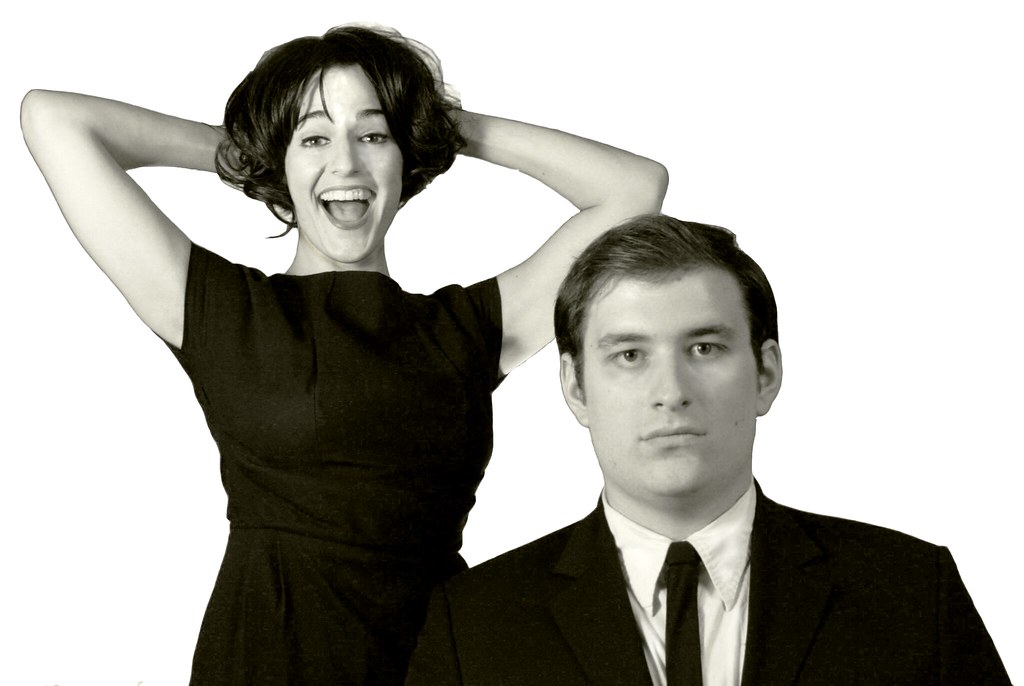
3. **Embracing Controversy: The Era of “The Man Show”**Following his success on “Win Ben Stein’s Money,” Jimmy Kimmel co-created and co-hosted “The Man Show” on Comedy Central, a program that solidified his reputation for juvenile, occasionally crass, and often politically incorrect humor. Airing from 1999 to 2004, the show, alongside comedian Adam Carolla, satirized and overtly celebrated stereotypical male interests. It openly declared its mission statement in its first episode, with Kimmel and Carolla calling the program “a dam to stop the river of estrogen that is drowning us in political correctness.”
“The Man Show” was undeniably raunchy, described as a “frat-house carnival of beer, bras and bouncing trampolines,” featuring segments like “girls on trampolines.” The humor was cheap, often cheerfully offensive, and proudly lowbrow, presenting itself as “dumb fun with no delusions of grandeur,” deliberately devoid of any overt moralizing. This approach resonated with a segment of the audience, solidifying Kimmel’s image as a provocateur unafraid to push boundaries and challenge prevailing social norms with a distinct brand of machismo.
However, this era was not without its significant controversies, which would later cast a long shadow over his career. Kimmel himself repeatedly donned blackface to impersonate celebrities like Oprah Winfrey and NBA star Karl Malone. Furthermore, he used the n-word while parodying Snoop Dogg’s music in 1996. These actions, which he would later apologize for in 2020, underscored the show’s embrace of a humor that, in retrospect, was deeply problematic and would become a stark contrast to the more socially conscious persona he would cultivate years later.
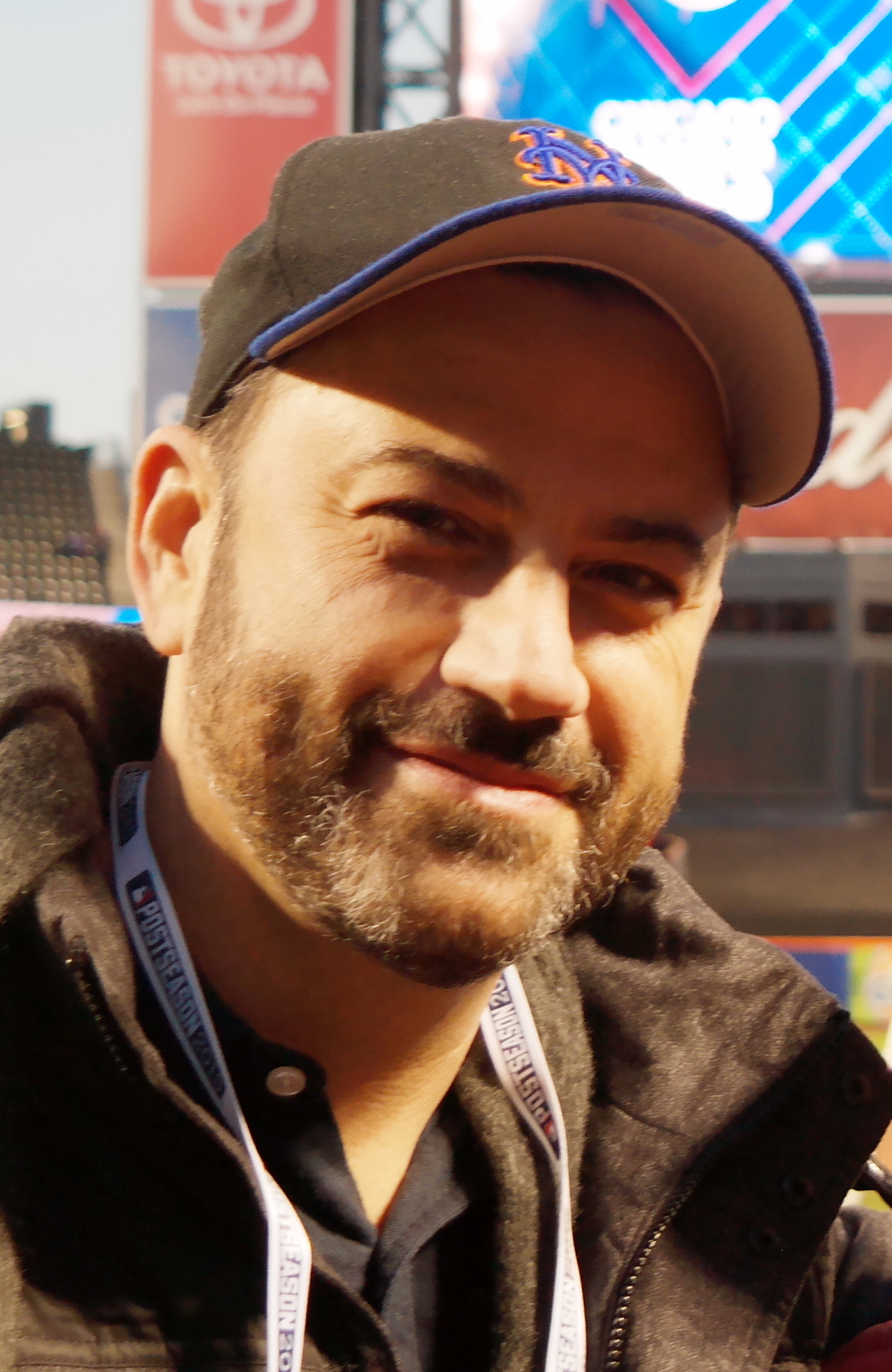
4. **Stepping into Late Night: Launching “Jimmy Kimmel Live!”**The turning point for Jimmy Kimmel arrived in 2003 when ABC offered him his own late-night program, “Jimmy Kimmel Live!” This move marked his entrance into the competitive arena of network television’s late-night landscape, a significant leap from the sketch comedy of “The Man Show.” The decision to move to ABC and start his late-night show while Adam Carolla remained with Comedy Central for “The Man Show”‘s final seasons underscored Kimmel’s ambition to transition into a more mainstream and enduring format.
In its initial years, “Jimmy Kimmel Live!” largely refrained from the overt political controversies that would later define his show. For several years, Kimmel cultivated a persona that, while still comedic and engaging, steered clear of the polarizing political commentary that would eventually become his trademark. He hosted cordial interviews with figures across the political spectrum, including then-candidate Donald Trump, who made previous appearances on the show promoting “The Apprentice.”
This period allowed Kimmel to grow from a scrappy newcomer into a late-night staple, anchoring ABC’s presence in a crowded field. The show was characterized by viral sketches, celebrity pranks, and a more generalized comedic approach, establishing a broad appeal before his notable shift towards more pointed political and personal commentary. It was a time of consolidation, where he cemented his position as a familiar face on television, ready for the evolution that lay ahead.
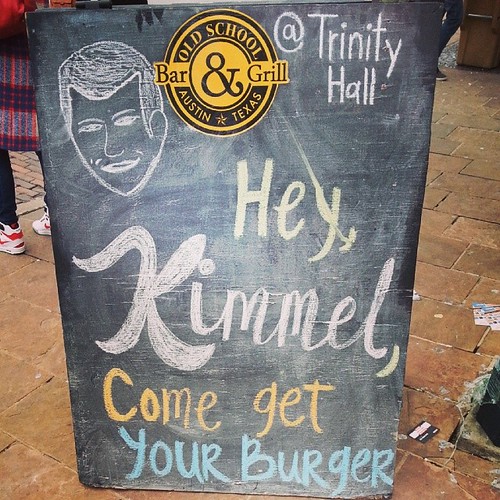
5. **Early Political Engagements and Oscar Hosting Swipes**While Kimmel largely refrained from deep political controversy in the early years of “Jimmy Kimmel Live!”, subtle shifts began to emerge, signaling a nascent willingness to engage with the political landscape. His role as host of Hollywood’s most prestigious ceremonies, like the Oscars, provided a platform that extended beyond typical late-night comedy, allowing him to subtly test the waters of political commentary. He was entrusted with handling major events, reflecting his growing trust factor within the industry.
Weeks after Donald Trump’s inauguration, Kimmel hosted the Oscars in February 2017 and used the opportunity to deliver an early, albeit mild, swipe at the new president. “I want to say thank you to President Trump. I mean, remember last year when it seemed like the Oscars were racist? It’s gone!” Kimmel quipped to the crowd of liberal A-listers. This remark, while eliciting cheers and laughs, demonstrated his increasing comfort in weaving political observations into his hosting duties, even if still couched in comedic relief.
These early forays hinted at a growing inclination to address broader societal issues, positioning him as a cultural translator who could use comedy to navigate significant national moments. It was a period of transition, where the boundaries of his persona began to expand from purely comedic entertainment to incorporating a more critical, albeit still guarded, perspective on power and culture. This prepared the ground for a much more dramatic pivot just a few months later.

6. **The Healthcare Monologue: A Defining Personal and Political Pivot**A truly defining moment in Jimmy Kimmel’s evolution, arguably the most significant, occurred in May 2017 when he delivered a tearful, deeply personal monologue that shifted the trajectory of his public persona dramatically. It wasn’t a planned political statement but a raw, emotional sharing of a private battle: his newborn son, William John Kimmel, or “Billy,” was born with a congenital heart issue that required immediate and multiple surgeries.
“It’s a terrifying thing,” Kimmel recounted at the time, his voice breaking. He vividly described the agonizing uncertainty in the hospital, standing amidst “worried looking people” while his wife was in recovery, unaware of the gravity of the situation. Billy underwent his first of multiple heart surgeries at only a few days old. This profound personal experience profoundly impacted Kimmel, moving him to use his powerful platform for a cause far greater than entertainment.
The decision to speak about his family’s ordeal was not merely an act of vulnerability; it was a deliberate choice to advocate for better healthcare in the United States. This monologue marked a clear and surprising evolution for a comedian who had previously found fame with a juvenile and occasionally crass brand of humor. It was a moment where the personal unequivocally became political, cementing his willingness to wear his “own heart on his sleeve” and transforming him into an unexpected, yet compelling, voice for social change.
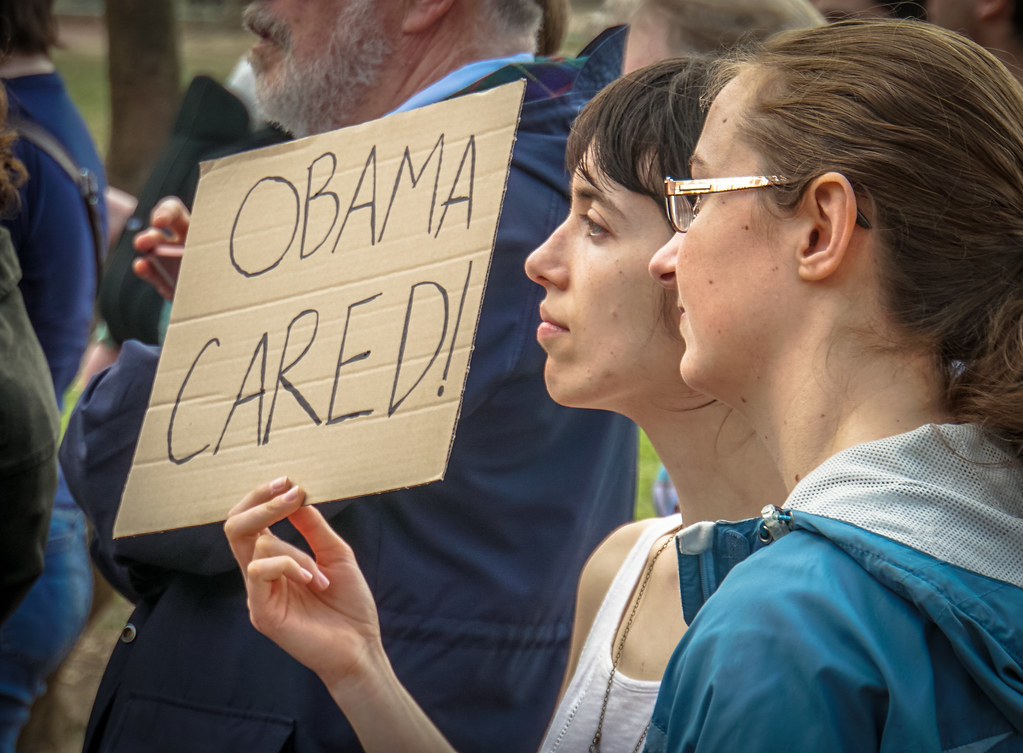
7. **Championing the Affordable Care Act and Public Advocacy**Following his profoundly impactful monologue about his son Billy’s heart condition, Jimmy Kimmel rapidly embraced the role of a liberal activist, channeling his personal pain into widespread public advocacy for healthcare reform. He was credited with helping to stop a Republican-led attempt to repeal and replace The Affordable Care Act (ACA) by urging his audience to take direct action. He famously posted the Senate switchboard number on screen during his show and implored viewers to call their elected officials, telling them, “This bill doesn’t pass your test.”
His commitment to the cause extended beyond this initial intervention. That September, he directly called out Republican senators such as Lindsey Graham and Bill Cassidy for their healthcare proposal, even utilizing talking points opposing the reform measure that were sent from Senate Minority Leader Chuck Schumer. Kimmel’s willingness to name names and actively campaign against specific legislative efforts marked a significant escalation of his political engagement, moving beyond general commentary to direct political intervention.
Just before the 2020 presidential election, Kimmel again used his platform to focus on healthcare, reminding his audience, “The vast majority of this country believes that health insurance should cover Americans with preexisting conditions.” He galvanized his viewers with an emotional appeal: “Americans take care of one another. Vote with your heart.” This consistent, impassioned advocacy, rooted in his personal experience, firmly established him as a prominent, albeit controversial, voice in the national healthcare debate, a far cry from his “Man Show” origins.
Read more about: 14 Inspiring Transgender Celebrities Making a Powerful Difference in Our World Today

8. **The Vehement Stand for Gun Control and Partisan Divisions**Following his profound personal experience advocating for healthcare, Jimmy Kimmel’s political activism broadened considerably, encompassing other emotionally charged national issues, most notably gun control. Just months after his healthcare monologue, in October 2017, he devoted an entire segment of his show to demanding gun control in the wake of the Las Vegas massacre. This powerful address transcended general calls for action, serving as a direct and unvarnished attack on Republican lawmakers he accused of indifference.
Kimmel’s monologue was not without its own controversies, however. During his remarks, he made several misleading statements, suggesting, for example, that semi-automatic rifles—which constitute the vast majority of rifles in the United States and fire one bullet per trigger pull—are not used for home defense. He further inflamed partisan tensions by accusing Republicans who disagreed with his stance on the Second Amendment of actively not caring about the lives lost, drawing a stark line in the sand regarding his political allegiances and willingness to alienate viewers.
This increasingly assertive stance was not lost on Kimmel himself. Days later, in an interview on “CBS Sunday Morning,” he spoke candidly about the risks he ran by becoming more overtly political. “I want everyone with a television to watch the show, but if they’re so turned off by my opinion on healthcare and gun violence, then … I probably wouldn’t want to have a conversation with them anyway,” he declared, signaling a profound shift in his approach to his audience and his role as a public figure. His conviction, born from personal anguish, now informed his unwavering political discourse, fundamentally altering the perceived boundaries of late-night entertainment.
Read more about: The Enduring Gravitational Pull: How Republicans Consistently Align with Donald Trump’s Evolving Vision

9. **Escalation of Personal Attacks and Targeted Mockery**As Kimmel’s political engagement deepened, his comedic style evolved from general commentary to more pointed, often personal, attacks on conservative figures and their policies. This marked a noticeable departure from his earlier, more broadly appealing humor. In the aftermath of the 2018 White House Easter Egg Roll, for instance, Kimmel drew sharp criticism for mocking then-First Lady Melania Trump’s accent after playing a clip of her reading to children, demonstrating a willingness to engage in humor that some found to be condescending and divisive.
His attacks became even more aggressive in 2019, particularly as the halfway point of Donald Trump’s first term approached. Kimmel presented a skit depicting the former president’s late father, Fred Trump, in hell, an extraordinarily provocative move that pushed the boundaries of political satire into deeply personal and, for many, offensive territory. Simultaneously, he aired another skit that made lewd jokes concerning the personal life of then-White House counselor Kellyanne Conway, further illustrating his heightened comfort with employing intensely personal and often crude humor against his political targets.
Perhaps most indicative of this escalating approach was his mocking of Trump voters in August 2019. Kimmel suggested that Americans who supported the president had been “repeatedly punched in the head,” a dismissive and derisive comment that alienated a significant portion of the viewership. This pattern of humor underscored a growing contempt for those who held opposing political viewpoints, transforming his late-night platform into a battleground where personal ridicule was frequently deployed as a weapon against his perceived adversaries, a dramatic contrast to the relatively apolitical comedian he once was.
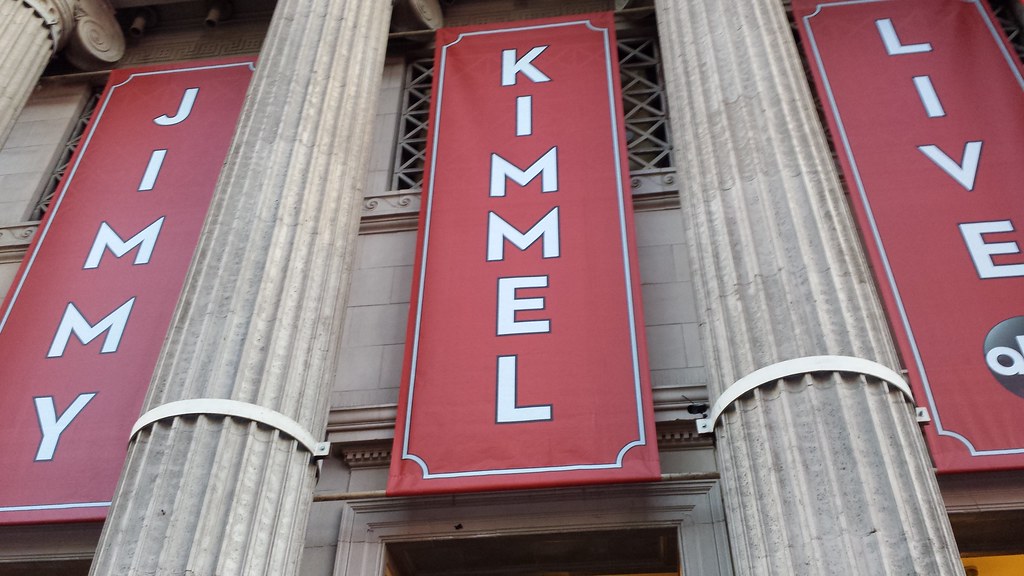
10. **“Jimmy Kimmel Live!” as a Progressive Political Platform**Leading up to and throughout the 2020 election cycle, “Jimmy Kimmel Live!” increasingly transformed into a prominent platform for Democratic figures, firmly establishing Kimmel’s show as a preferred venue for the party’s hopefuls and established leaders. This shift solidified his role as a vocal proponent of Democratic policies and a key media ally, a stark contrast to his past interviews with figures across the political spectrum.
The show rolled out the red carpet for an array of Democratic presidential hopefuls, providing them with invaluable national exposure. Esteemed politicians such as Joe Biden, Kamala Harris, Bernie Sanders, Elizabeth Warren, Amy Klobuchar, and Cory Booker all made appearances. In a particularly notable instance of this alignment, Kimmel even handed the reins of his show over to Pete Buttigieg, allowing him to guest-host in March 2020, an act that symbolized a deep level of trust and ideological kinship.
Beyond presidential candidates, Kimmel also welcomed other top Democrats, including Sen. Adam Schiff, Reps. Alexandria Ocasio-Cortez and Jasmine Crockett, Illinois Gov. JB Pritzker, Michigan Gov. Gretchen Whitmer, failed Texas Senate candidate Beto O’Rourke, and failed Georgia gubernatorial candidate Stacey Abrams. This consistent showcasing of Democratic voices highlighted the show’s evolution into a partisan outlet, cementing Kimmel’s image not just as a comedian, but as a significant, influential figure within the liberal media landscape, actively shaping political discourse through entertainment.
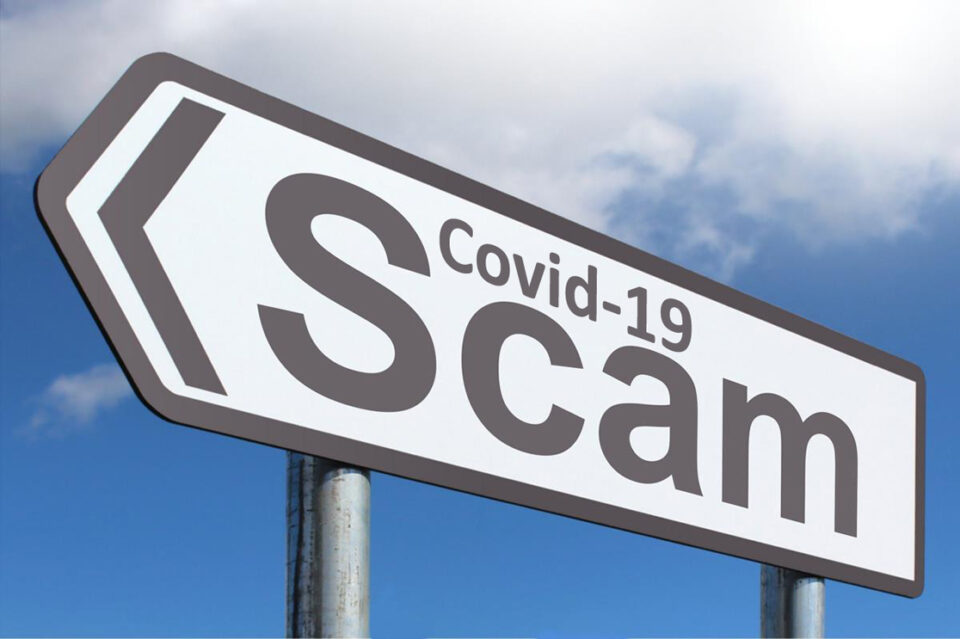
11. **Controversial COVID-19 Comments and Misleading Videos**Kimmel’s increasingly partisan stance and willingness to take definitive, often inflammatory, positions extended into the public health realm during the COVID-19 pandemic, generating further controversy. In the early months of the pandemic, he faced backlash for peddling a misleading video of then-Vice President Mike Pence, accusing him of carrying “empty” PPE boxes at a healthcare facility. The accusation proved to be false, and Kimmel was subsequently compelled to issue an apology, highlighting the risks of his newfound role as a political commentator who occasionally traded accuracy for partisan jabs.
His commentary on the pandemic grew even more provocative in December 2020 when he controversially argued that Pence should not receive the COVID vaccine. This remark stemmed from Pence’s earlier, inaccurate prediction that a second wave of the virus would not occur. Kimmel’s biting critique went beyond political disagreement, suggesting, “The only cure Mike Pence should get right now is a bottle of Clorox and a heat lamp,” a statement that many viewed as not only unscientific but also deeply personal and cruel, further polarizing his audience and critics.
Perhaps most chillingly, in September 2021, Kimmel suggested that overcrowded hospitals should consider withholding treatment from unvaccinated patients. “That choice doesn’t seem so tough to me. Vaccinated having a heart attack? Yes, come right in. We’ll take care of you. Unvaccinated guy who gobbled horse goo, rest in peace, wheezy,” he quipped. This flippant dismissal of human life, even in jest, shocked many, raising serious ethical questions about the responsibility of public figures and underscoring the extreme nature of some of his political commentary during a global crisis.
Read more about: The Complex Persona of Marjorie Taylor Greene: Examining Her Political Path and Controversial Public Profile
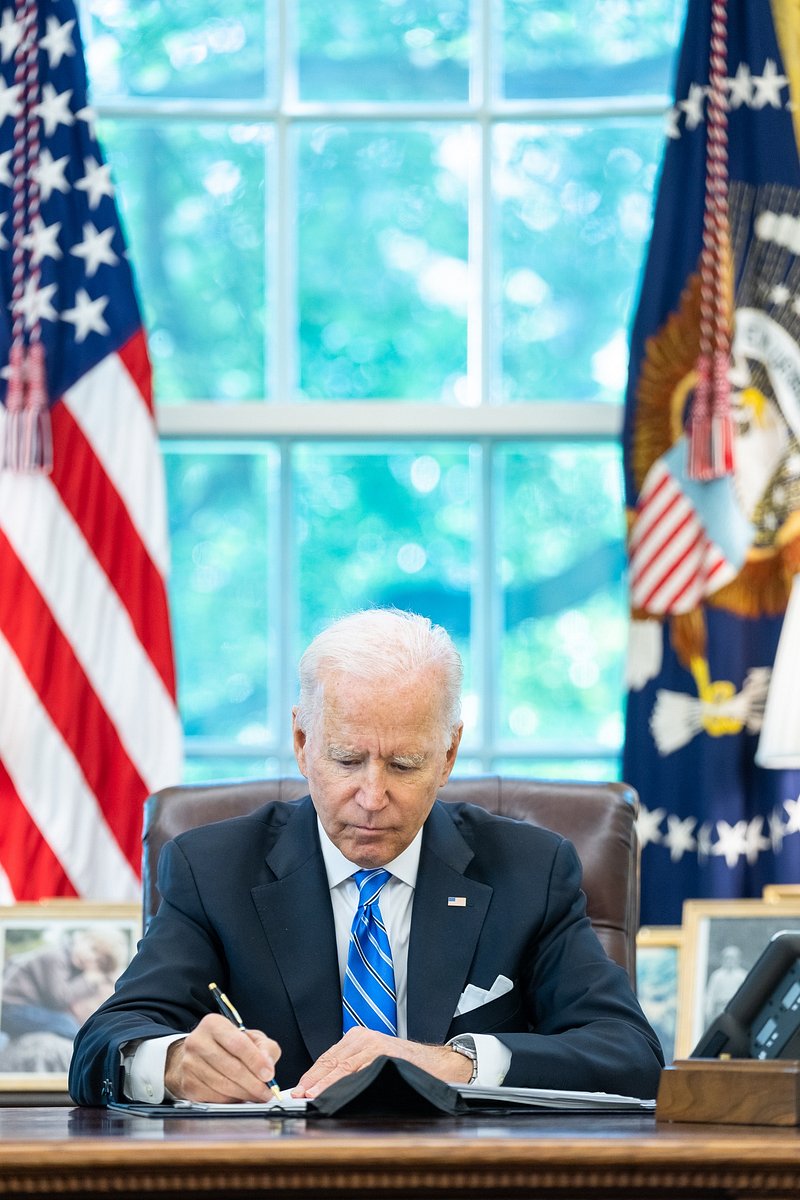
12. **The Defense and Shielding of President Biden**As President Joe Biden’s tenure progressed, particularly amidst growing public discourse surrounding his cognitive acuity, Jimmy Kimmel emerged as a steadfast defender, often employing his platform to dismiss or downplay concerns raised by others. In February 2024, he conspicuously avoided any mention of the Robert Hur report, which revealed that the Department of Justice would not prosecute Biden over his mishandling of classified documents, in part because a jury might perceive him as a “sympathetic, well-meaning elderly man with a poor memory.” This deliberate omission suggested a concerted effort to control the narrative presented to his audience.
This pattern of selective reporting continued into early June, when Kimmel again avoided discussing The Wall Street Journal’s report indicating that Biden was exhibiting “signs of slipping” behind the scenes. Furthermore, Kimmel played a pivotal, and at times awkward, role in addressing a high-profile incident at a Los Angeles fundraiser. During this event, highlighted in the “Original Sin” report, Biden appeared not to recognize celebrity fundraiser co-host George Clooney in a backstage exchange. Kimmel himself was also visible in a viral video of Biden freezing on stage, being subsequently escorted away by former President Barack Obama.
At the time, Kimmel vehemently insisted there was “no there there.” He told his audience, “He didn’t freeze. He was just listening to the people calling him in the front row,” while simultaneously lambasting “right-wing media” for “working very hard to claim Biden’s out of it.” While he did lightly roast conservatives for speculating about Biden’s replacement on the Democratic ticket after a perceived disastrous debate performance, his overall posture remained one of staunch defense, highlighting his role as an unwavering ally in shaping public perception of the president.
Read more about: Divergent Paths: How ICE Tactics Are Reshaping Immigration Enforcement Across America’s Red and Blue Divide
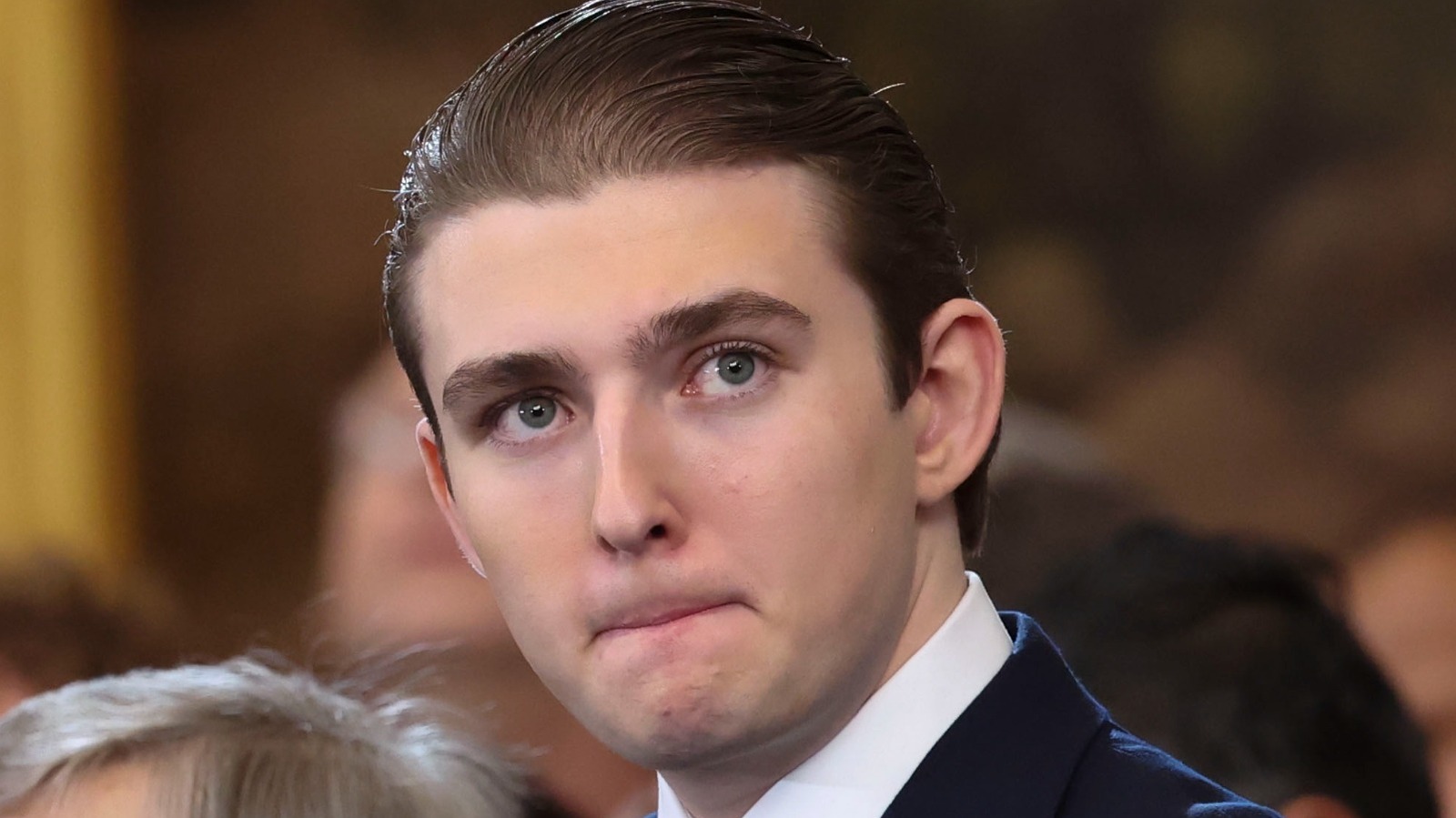
13. **The Charlie Kirk Controversy and Indefinite Suspension**Jimmy Kimmel’s career, marked by a dramatic evolution from raunchy comedian to political satirist, reached an unprecedented crossroads in September of this year, culminating in the indefinite suspension of “Jimmy Kimmel Live!”. The catalyst was a series of comments he made regarding the assassination of conservative activist Charlie Kirk, which sparked an immediate and intense backlash from various quarters.
On a Monday broadcast, Kimmel suggested that the alleged assassin, 22-year-old Tyler Robinson, was part of the “MAGA gang,” despite emerging reports and a subsequent indictment indicating Robinson held left-wing ideological views. Kimmel proclaimed, “We hit some new lows over the weekend with the MAGA gang desperately trying to characterize this kid who murdered Charlie Kirk as anything other than one of them and doing everything they can to score political points from it.” This assertion, perceived by many as both factually incorrect and deeply insensitive, immediately ignited a firestorm of criticism.
He further exacerbated the situation by mocking Donald Trump’s reaction to Kirk’s death, quipping, “This is not how an adult grieves the murder of somebody he called a friend. This is how a 4-year-old mourns a goldfish, OK?” The confluence of these remarks—attributing the crime to a political ideology without substantiation and trivializing a tragedy—provoked immense pressure on Disney, ABC’s parent company. Nexstar and Sinclair, two of ABC’s largest affiliate owners, announced they would be pulling “Jimmy Kimmel Live!” from their stations, and the Federal Communications Commission (FCC) also weighed in, threatening action.
Under this mounting pressure, Disney’s ABC ultimately made the extraordinary decision to preempt Kimmel’s show “indefinitely.” This suspension marked a dramatic, if perhaps inevitable, culmination of years of increasingly partisan commentary and personal attacks. While Kimmel’s contract is set to expire in May 2026, and his viewership has steadily declined—losing 40% of its total audience over the past decade and a staggering 72% among the key 25-54 demographic—the indefinite suspension underscored the profound challenges that arise when the boundaries between entertainment, activism, and ethical discourse become irrevocably blurred. Kimmel, once the “frat-house fool” of Comedy Central, now stands at the precipice of an uncertain future, his career a vivid illustration of the volatile intersection of celebrity, politics, and corporate accountability in contemporary media.
Read more about: Phil Robertson, ‘Duck Dynasty’ Patriarch and Founder of Duck Commander, Dies at 79
Jimmy Kimmel’s journey, from a cheeky Las Vegas radio personality to a late-night titan embroiled in a national debate over free speech, reflects a remarkable and often tumultuous evolution. His story is not merely that of a comedian’s growth, but a profound cultural narrative illustrating the increasing demands placed upon public figures, the erosion of traditional comedic boundaries, and the fraught consequences of intertwining entertainment with deeply personal and partisan convictions. As the spotlight of late-night television shifts and the lines between humor and activism blur further, Kimmel’s experience serves as a compelling case study—a complex saga of ambition, adaptation, and the enduring quest for relevance in an ever-changing media landscape.

